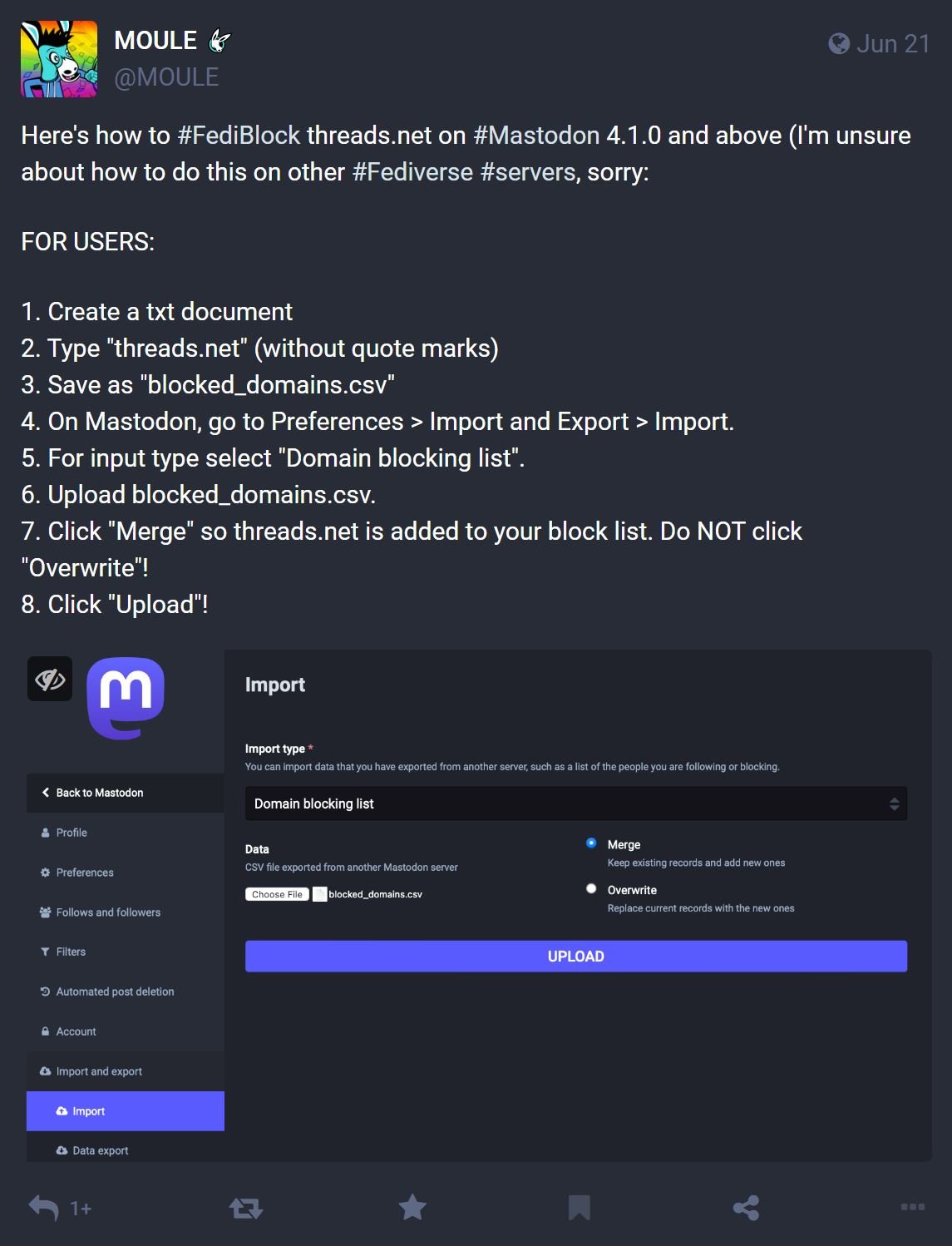this post was submitted on 05 Jul 2023
1836 points (96.8% liked)
Technology
59446 readers
3485 users here now
This is a most excellent place for technology news and articles.
Our Rules
- Follow the lemmy.world rules.
- Only tech related content.
- Be excellent to each another!
- Mod approved content bots can post up to 10 articles per day.
- Threads asking for personal tech support may be deleted.
- Politics threads may be removed.
- No memes allowed as posts, OK to post as comments.
- Only approved bots from the list below, to ask if your bot can be added please contact us.
- Check for duplicates before posting, duplicates may be removed
Approved Bots
founded 1 year ago
MODERATORS
you are viewing a single comment's thread
view the rest of the comments
view the rest of the comments

That's the problem though. If XMPP had grew organically then it would fare much better. With how it happened, XMPP's growth was mostly because of Google, and that put a lot of pressure to other servers and the protocol's development to cater to them, because they had the majority of the users in their platform.
It is absurd to think XMPP would have gained traction without Google. And it is an objectively shitty protocol, so Google dropping it was the right move. It is kind of weird to see people holding up Google dropping XMPP as some horrifying example of embrace, extend, extinguish, when anyone that's actually developed software with the protocol wants it to die in a burning fire.
How convoluted the protocol is doesn't really matter as long as someone creates an easy tool to spin up your own server.
I think the XMPP comparison stills stands: Google was able to steer how the protocol developed, or which version of the protocol people used because they had the majority of the users and other servers wanted to still be able to interact with them.
Suppose that Facebook joins the fediverse and most large instances federate with them. All is great, then Facebook starts to make demands to other instances in order to keep federating with them, e.g. no posts about protests. Because a large share of ActivityPub activity will be on Threads, naive users would prefer instances that federate with it, so instance mods will be incentivized to comply with Facebook's demands to attract new users and maintain their current one and... you see where this is going. The only way to deal with this is to deny Facebook this kind of leverage in the first place, either by blocking them instantly or at their first mishap or demand.
This is where your argument falls apart. Why? There is no incentive for instance mods to want to grow their instances exponentially.
If Facebook's ActivityPub grows to be incompatible with the existing implementation, who cares? So what if you run a Mastodon instance and aren't getting millions of new users a day?
This is much ado about nothing. While there is a shared platform, enjoy the ride, and if they don't want to play by your rules anymore, there's no harm to anyone in saying goodbye and staying your course.
It's true that instances don't need to grow exponentially (or at all), but most mods/admins want to maintain their community and not see it dwindle down to nothing. People used to interacting with instances run by Facebook or other corporations (which most of their friends or family will use) might get upset if the federation link with them gets severed. If they do, they'll either pressure the instance admin to comply with the corporations and federate with them again, or switch to the corporations' instances. Both of these scenarios are bad for the future of the fediverse.